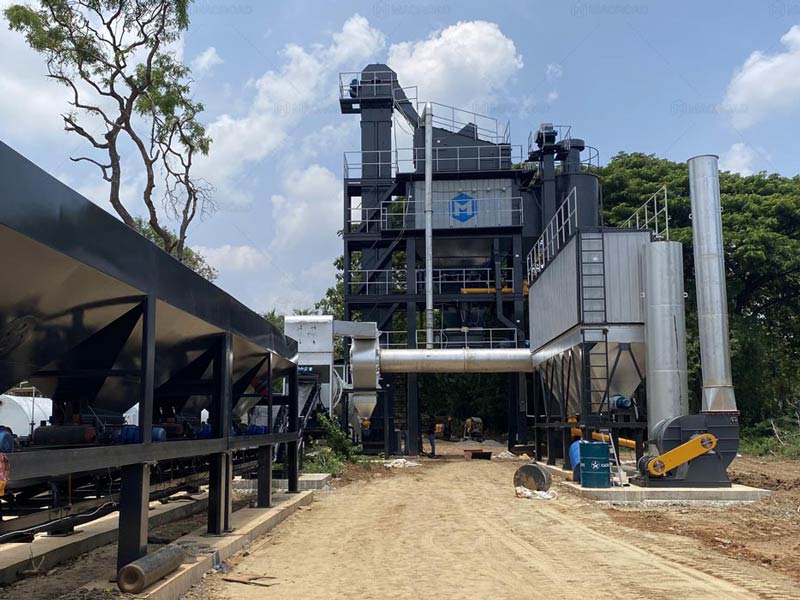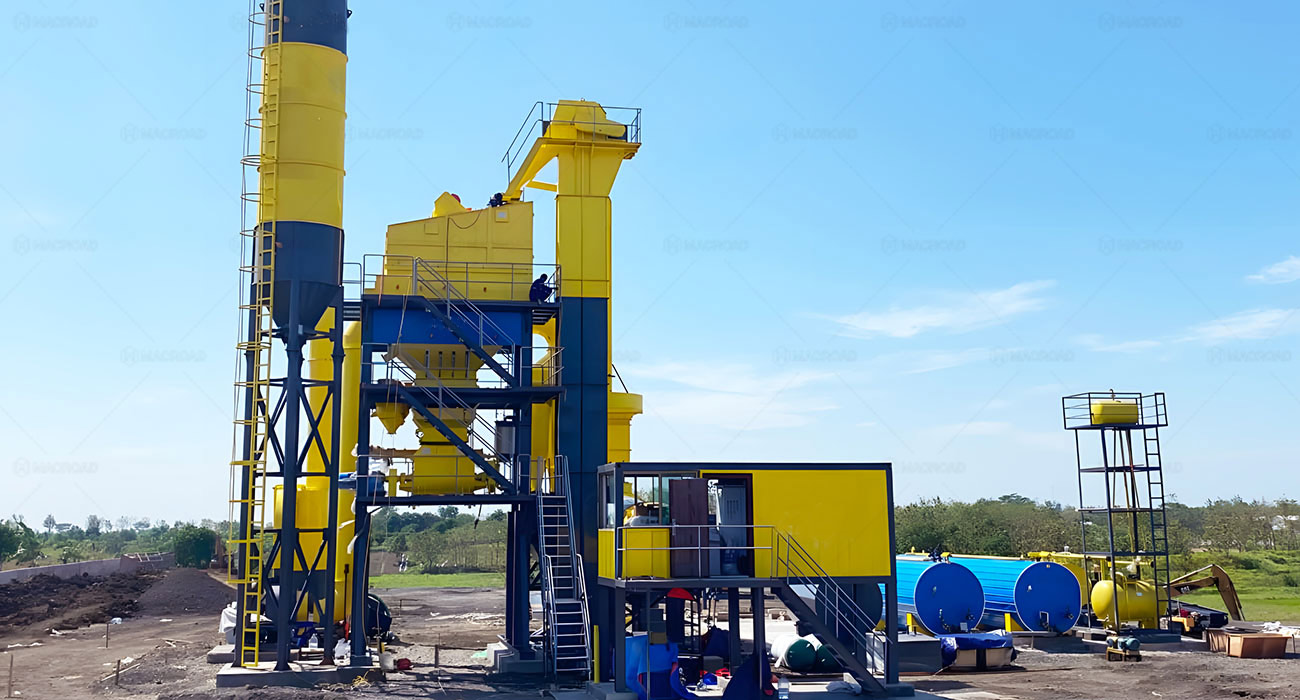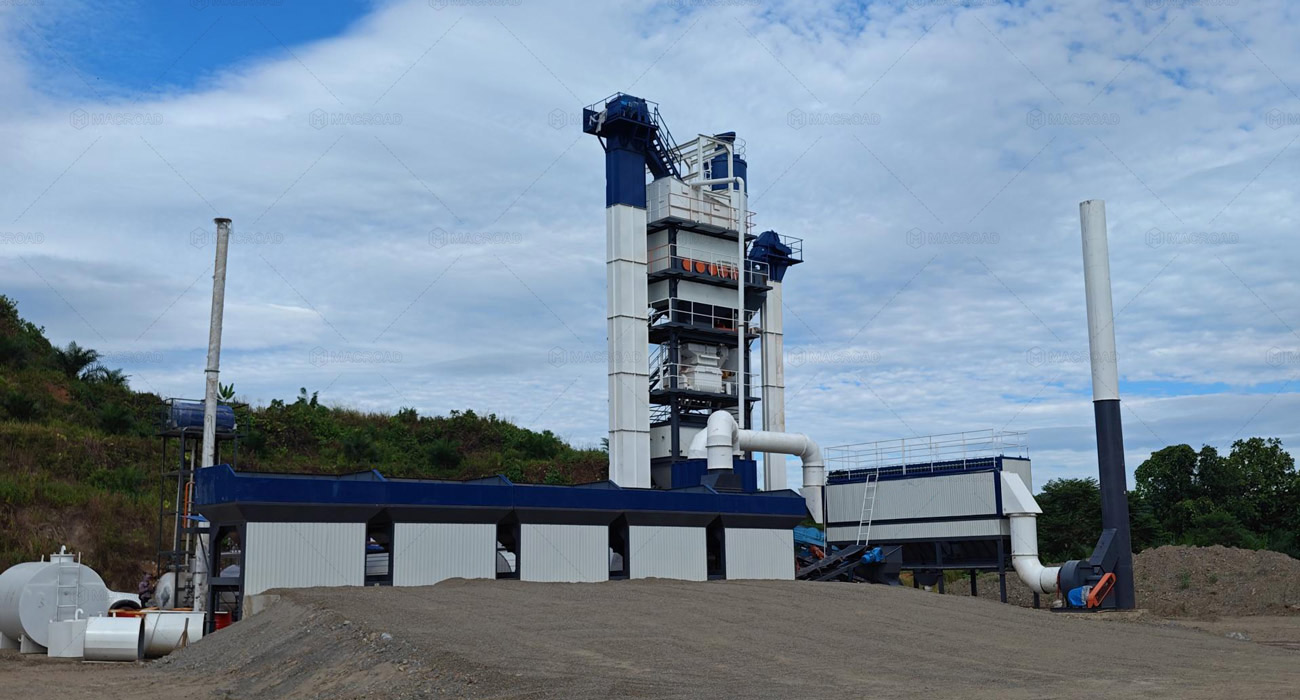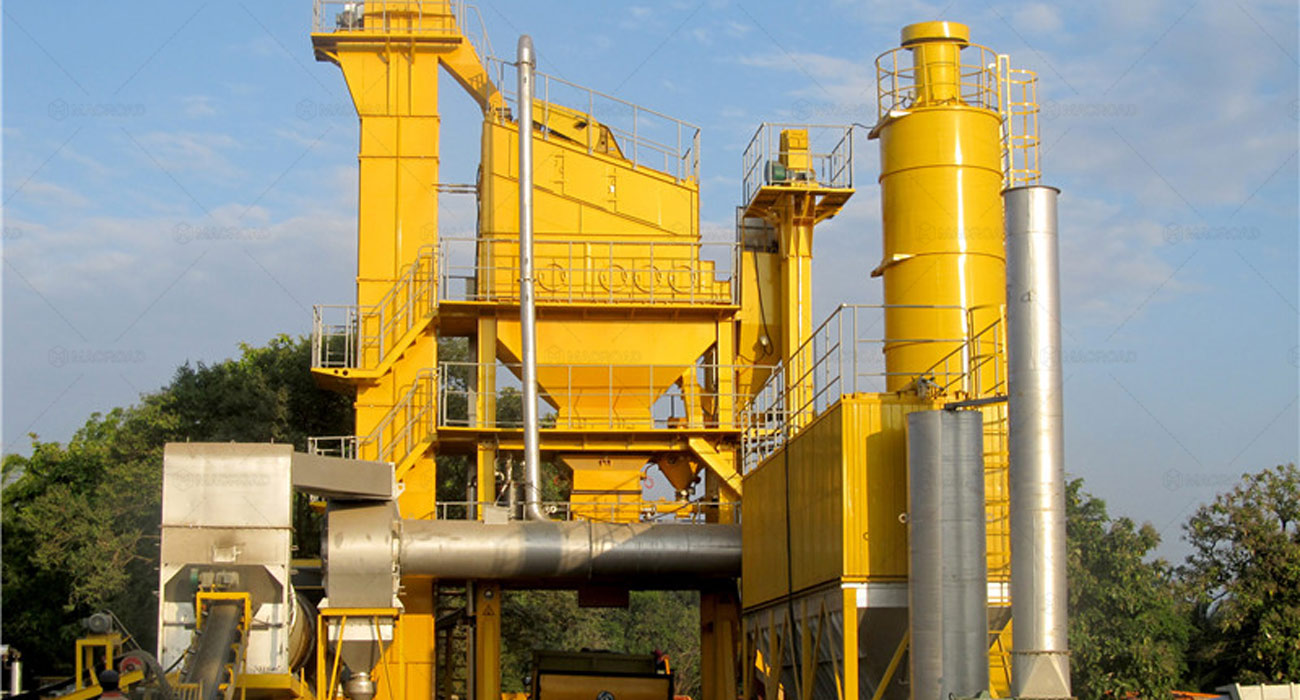14
0
0
Optimizing Asphalt Batch Mix Plant Processes for Sri Lanka's Unique Challenges
Sri Lanka's diverse landscape, characterized by mountains and islands, presents distinct challenges for road construction projects. Local asphalt plants in Sri Lanka often utilize the asphalt batch mix plant process to produce high-quality asphalt. However, scattered project sites and weak infrastructure can lead to interruptions in production due to delayed raw material transportation or intermittent material supply. This article explores strategies to optimize the connection process of batch production, enhancing efficiency and minimizing disruptions.

Understanding the Asphalt Batch Mix Plant Process
The asphalt batch mix plant process is a popular choice for producing asphalt in various conditions. This process allows for precise control over the mixture, ensuring high-quality output tailored to specific project requirements. However, the effectiveness of this process can be compromised by logistical challenges, particularly in regions with limited infrastructure.
In Sri Lanka, where construction sites may be remote and access limited, optimizing the connection process is crucial. By focusing on raw material preparation and temporary storage planning, asphalt plants can mitigate disruptions and enhance production efficiency.

Advance Reserve of Raw Material Pretreatment
One of the most effective strategies to reduce process interruptions is to maintain an advance reserve of raw material pretreatment. This involves preparing and stockpiling key materials, such as aggregates and asphalt, ahead of time.
By anticipating the material needs of upcoming projects, asphalt plants can ensure that they have adequate supplies ready for production. This proactive approach helps to minimize the impact of delays caused by transportation issues. For instance, if a construction site experiences a transportation delay, the asphalt plant can still proceed with production using pre-treated materials.
Additionally, having a designated area for raw material storage can streamline the pretreatment process. Efficiently organized stockpiles reduce the time spent on material handling and preparation, ultimately boosting overall production efficiency.

Temporary Storage Planning for Finished Materials
In addition to raw material pretreatment, planning for temporary storage of finished materials is critical in optimizing the asphalt batch mix plant process. Effective storage solutions can prevent bottlenecks and ensure that produced asphalt is readily available for immediate use at construction sites.
Asphalt plants should design their layout to include sufficient space for temporary storage of finished mixes. This can involve the use of insulated silos or containers that protect the asphalt from temperature fluctuations and contamination. Proper insulation helps maintain the quality of the asphalt, ensuring that it remains suitable for application.
By having a reliable storage system in place, asphalt plants can better manage their output and respond quickly to the needs of scattered projects. This flexibility is essential for asphalt plant in Sri Lanka, where road construction demands can vary significantly between locations.

Improving Communication and Logistics
To further enhance the efficiency of the asphalt batch mix plant process, improving communication and logistics is essential. Establishing strong lines of communication with suppliers and construction teams can help coordinate material deliveries more effectively.
Implementing a scheduling system that accounts for potential delays in transportation allows asphalt plants to adjust their production plans accordingly. By keeping all stakeholders informed, asphalt plants can minimize the impact of disruptions and maintain a steady flow of materials to construction sites.
In addition, leveraging technology such as fleet management systems can optimize delivery routes and reduce transportation times. This not only improves material supply logistics but also enhances overall project timelines.
Conclusion: Enhancing Production Efficiency in Sri Lanka
Optimizing the asphalt batch mix plant process is vital for overcoming the challenges posed by Sri Lanka's unique landscape and infrastructure limitations. By focusing on advance reserves of raw material pretreatment, effective temporary storage planning, and improved communication and logistics, asphalt plants can significantly reduce process interruptions and enhance production efficiency.
These strategies allow for a more streamlined operation, ensuring that asphalt plants can meet the demands of scattered construction projects while maintaining the quality of their output. As the road construction industry in Sri Lanka continues to grow, implementing these optimization techniques will be crucial for success.

Understanding the Asphalt Batch Mix Plant Process
The asphalt batch mix plant process is a popular choice for producing asphalt in various conditions. This process allows for precise control over the mixture, ensuring high-quality output tailored to specific project requirements. However, the effectiveness of this process can be compromised by logistical challenges, particularly in regions with limited infrastructure.
In Sri Lanka, where construction sites may be remote and access limited, optimizing the connection process is crucial. By focusing on raw material preparation and temporary storage planning, asphalt plants can mitigate disruptions and enhance production efficiency.

Advance Reserve of Raw Material Pretreatment
One of the most effective strategies to reduce process interruptions is to maintain an advance reserve of raw material pretreatment. This involves preparing and stockpiling key materials, such as aggregates and asphalt, ahead of time.
By anticipating the material needs of upcoming projects, asphalt plants can ensure that they have adequate supplies ready for production. This proactive approach helps to minimize the impact of delays caused by transportation issues. For instance, if a construction site experiences a transportation delay, the asphalt plant can still proceed with production using pre-treated materials.
Additionally, having a designated area for raw material storage can streamline the pretreatment process. Efficiently organized stockpiles reduce the time spent on material handling and preparation, ultimately boosting overall production efficiency.

Temporary Storage Planning for Finished Materials
In addition to raw material pretreatment, planning for temporary storage of finished materials is critical in optimizing the asphalt batch mix plant process. Effective storage solutions can prevent bottlenecks and ensure that produced asphalt is readily available for immediate use at construction sites.
Asphalt plants should design their layout to include sufficient space for temporary storage of finished mixes. This can involve the use of insulated silos or containers that protect the asphalt from temperature fluctuations and contamination. Proper insulation helps maintain the quality of the asphalt, ensuring that it remains suitable for application.
By having a reliable storage system in place, asphalt plants can better manage their output and respond quickly to the needs of scattered projects. This flexibility is essential for asphalt plant in Sri Lanka, where road construction demands can vary significantly between locations.

Improving Communication and Logistics
To further enhance the efficiency of the asphalt batch mix plant process, improving communication and logistics is essential. Establishing strong lines of communication with suppliers and construction teams can help coordinate material deliveries more effectively.
Implementing a scheduling system that accounts for potential delays in transportation allows asphalt plants to adjust their production plans accordingly. By keeping all stakeholders informed, asphalt plants can minimize the impact of disruptions and maintain a steady flow of materials to construction sites.
In addition, leveraging technology such as fleet management systems can optimize delivery routes and reduce transportation times. This not only improves material supply logistics but also enhances overall project timelines.
Conclusion: Enhancing Production Efficiency in Sri Lanka
Optimizing the asphalt batch mix plant process is vital for overcoming the challenges posed by Sri Lanka's unique landscape and infrastructure limitations. By focusing on advance reserves of raw material pretreatment, effective temporary storage planning, and improved communication and logistics, asphalt plants can significantly reduce process interruptions and enhance production efficiency.
These strategies allow for a more streamlined operation, ensuring that asphalt plants can meet the demands of scattered construction projects while maintaining the quality of their output. As the road construction industry in Sri Lanka continues to grow, implementing these optimization techniques will be crucial for success.
Signatur